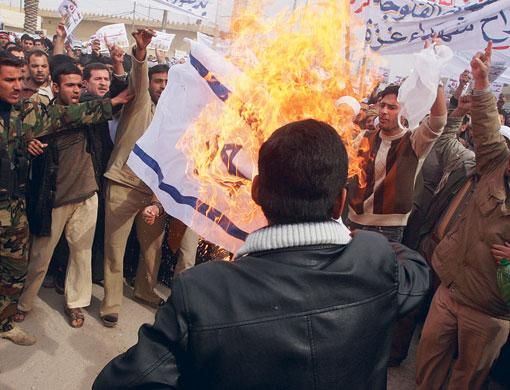Baghdad: The US is closely monitoring Iraqi sentiment towards events in Gaza, collecting intelligence and strategic information on the nature of any future Iraqi position on the Arab-Israeli conflict.
The US knows that there are threats from both the Sunni and Shiite Islamist parties, which both have significant representation in the Iraqi government. These parties, especially the Shiite ones which have a close affiliation with Iran, worry the US that a future Iraq would adopt very strict attitudes towards Israel. It may very well be a continuous state of war between Iraq and Israel, which is directly opposing US goals in the region.
Kurdish parties also express solidarity with the Palestinian struggle for freedom, especially in light of historical relations with the PLO under the late Palestinian President Yasser Arafat.
Threat
There are two options for the main political parties in Iraq. The first is to join the camp of resistance, adopting a harsh line against Israel and its policies. Iraqi politicians are very likely to fall into this camp.
The second option is for Iraq to join the camp of the so-called Arab moderates, such as Jordan and Egypt and the Palestinian Authority, which supports compromise and dialogue with Israel, and this is the option that the US is hoping for.
Many Iraqi leaders also believe that Iraq must regain its influence in the region and recreate itself as a positive regional power. However, they believe Iraqi aims should be clear and unified, unlike the late Iraqi President Saddam Hussain, who supported the Palestinian right to self-determination on one hand, but invaded Kuwait on the other.
Israel remains adamantly opposed to Iraq being equipped with sophisticated weaponry by the US and EU, and there are many reports surfacing of Israeli efforts to block these arms shipments from Eastern Europe to Iraq.
To Israel, a strong Iraq will always be a threat, as it was before the US invasion in 2003 under the rule of Saddam.













